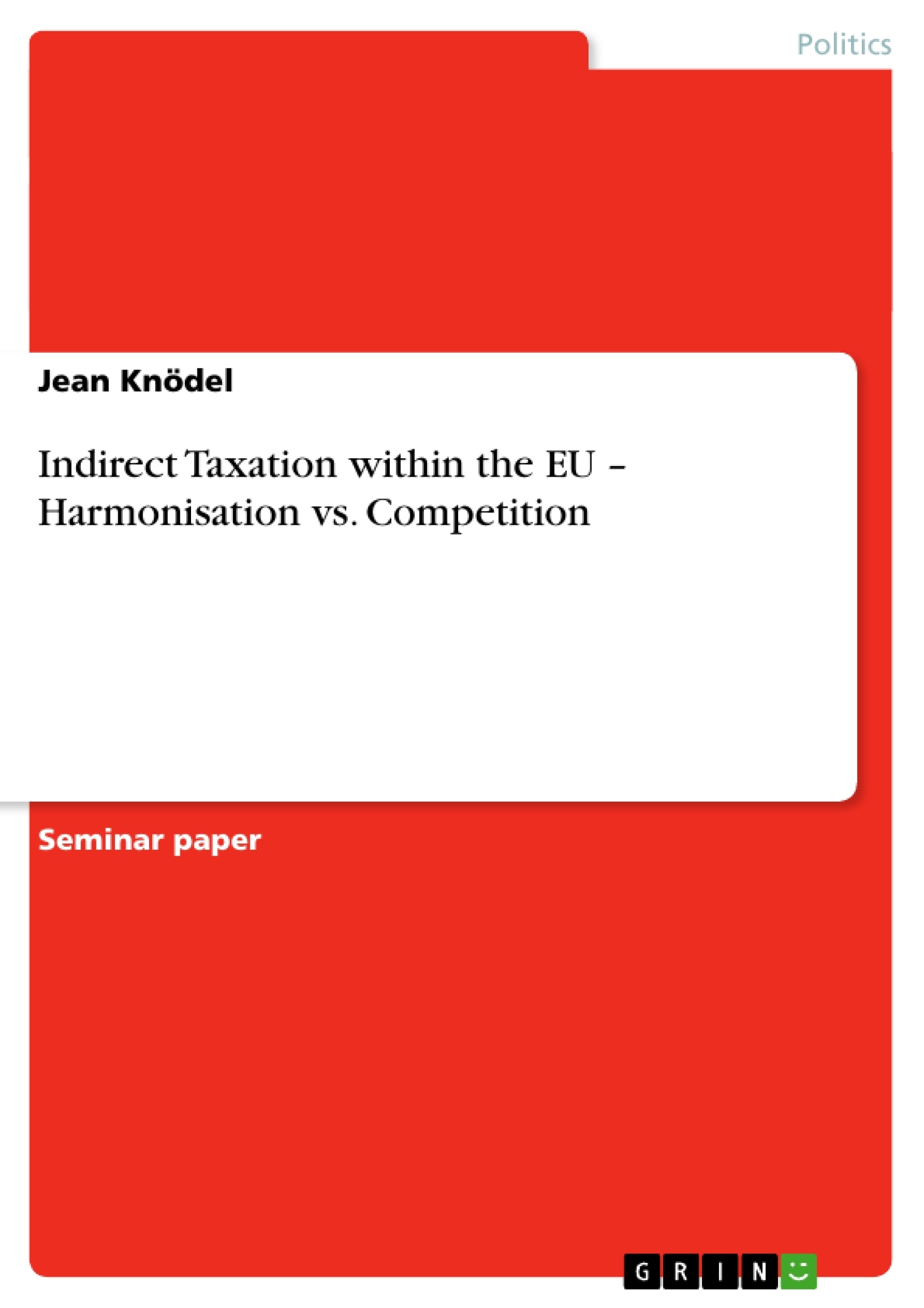While the economic integration of the EU is already on an advanced level due to the establishment of the Single Market and the European Monetary Union (EMU), it can be stated that some significant fields are lagging behind. Amongst others, the harmonisation of indirect taxes within the EU is a controversial topic (Genschel 2002: 16, Randzio-Plath 1999: 665). Any fiscal harmonisation hardly alludes to the funding basis of the public budget of the several MS. In the range of indirect taxes, value added tax (VAT), which is especially problematic for allocation politics, is already harmonised on a high level, while at the same time other excise duties were harmonised only hesitantly.
The aim of this paper is to examine the question of whether there is more harmonisation than competition in the field of indirect taxation in the EU. In general, the paper will deal with the question of what fiscal harmonisation actually is and which consequences can arise from a situation of competition for the government.
Inhaltsverzeichnis (Table of Contents)
- Introduction and purpose of the paper
- Definitions
- Indirect Taxes - definition and relevance
- VAT-definition and relevance
- Excise duties - definition and relevance
- Fiscal policy within the European Union
- Diversity of fiscal systems within the EU member states
- Harmonisation vs. Competition
- Harmonisation of indirect taxation
- VAT
- Excise duties
- Conclusion
- Future prospects
Zielsetzung und Themenschwerpunkte (Objectives and Key Themes)
This term paper examines the challenges and perspectives of indirect taxation harmonisation within the European Union, focusing on the tension between harmonisation and competition. It analyzes the role of indirect taxes, particularly VAT and excise duties, in the context of the European Economic and Monetary Union.
- The relationship between fiscal policy and European integration
- The challenges of harmonizing indirect taxes in the EU
- The potential benefits and drawbacks of tax competition
- The different approaches to VAT and excise duty harmonisation
- The future prospects of indirect taxation in the EU
Zusammenfassung der Kapitel (Chapter Summaries)
The paper begins by introducing the purpose and scope of the analysis, highlighting the importance of fiscal policy and the challenges of indirect tax harmonisation in the EU. The second chapter defines key terms, focusing on indirect taxes, VAT, and excise duties. It explores the relevance of these taxes in the context of the European Union. The third chapter discusses the role of fiscal policy within the EU and its impact on economic growth and integration. The following chapter examines the diversity of fiscal systems among EU member states, exploring how these variations impact tax harmonisation efforts. The fifth chapter delves into the tension between harmonisation and competition, presenting arguments for and against each approach. The sixth chapter analyzes the current state of harmonisation in VAT and excise duties, highlighting key challenges and strategies employed by the EU. Finally, the seventh chapter offers a concluding overview of the key points and future prospects of indirect taxation in the European Union.
Schlüsselwörter (Keywords)
This term paper focuses on key concepts such as indirect taxation, VAT, excise duties, fiscal policy, harmonisation, tax competition, European Union, and Economic and Monetary Union. It explores the challenges and perspectives of achieving harmonisation within the context of EU integration, examining the interplay of economic, legal, and institutional factors.
- Quote paper
- Jean Knödel (Author), 2008, Indirect Taxation within the EU – Harmonisation vs. Competition, Munich, GRIN Verlag, https://www.grin.com/document/127278




